Conference on the 100th Anniversary of the 1909 Copyright Act
at Santa Clara Law, April 30, 2009
Daly Science Building, Room 207
8:30 am – 6:30 pm
Sponsored by:
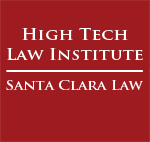

High Tech Law Institute, Santa Clara University School of Law
Berkeley Center for Law & Technology, University of California Berkeley School of Law
Conference podcast on iTunesU
Speaker information
Conference presentations
Conference papers
Conference schedule
Conference media coverage
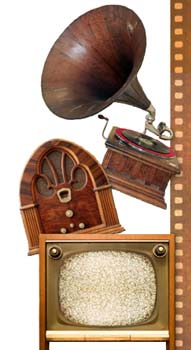 Attendance is free and open to the public.
Attendance is free and open to the public.
CLE: Seven hours of CLE will be available. Santa Clara Law is a State Bar of California approved MCLE provider.
Join two dozen distinguished scholars and practitioners to discuss the strengths and weaknesses of the 1909 Act and its profound effect on U.S. and international copyright law.
The 1909 Copyright Act marked a revolution in U.S. copyright law. The 1909 Act was the first to protect works upon publication with notice, without prior registration; the first to expressly recognize a right to prepare derivative works; and the first to expressly recognize the public domain. The 1909 Act remained in effect for seven decades, during which time copyright law was repeatedly called upon to deal with the disruptive effect of new technologies, such as motion pictures, sound recordings, radio and television, photocopy machines, and computers. As a result, the 1909 Act had a significant influence on the copyright law we have today.
Keynote speakers:
 David Nimmer, Of Counsel, Irell & Manella
David Nimmer, Of Counsel, Irell & Manella
David Nimmer is of counsel to Irell & Manella LLP in Los Angeles, California. He also served as a visiting Professor at University of California, Los Angeles Law School and Distinguished Scholar at the Berkeley Center for Law and Technology. In 2000, he was elected to the American Law Institute.
Prof. Nimmer was selected for inclusion in Southern California “Super Lawyers” by Los Angeles Magazine in 2006, 2007, 2008 and 2009. Also, he has been named in The Best Lawyers in America for over 10 years. The Los Angeles and San Francisco Daily Journal named Mr. Nimmer one of California’s “Top 10 Copyright Lawyers” in 2008.
Prof. Nimmer represents clients in the entertainment, publishing, and high-technology fields. He gave congressional testimony on behalf of the United States Telephone Association in 1997 and the National Association of Broadcasters in 1992, and Parliamentary testimony on behalf of the Combined Newspaper and Magazine Copyright Committee of Australia in Sydney in 1993.
He received an A.B. with distinction and honors in 1977 from Stanford University and his J.D. in 1980 from Yale Law School, where he served as editor of the Yale Law Journal.
Prof. Nimmer also served as the Chairman on the Committee on Intellectual Properties Litigation for the American Bar Association from 1989-1992.
William Patry, Senior Counsel, Google
Senior Copyright Counsel, Google Inc. Former Copyright counsel, U.S. House of Representatives, Committee on the Judiciary; Policy Planning Advisor to the Register of Copyrights, U.S. Copyright Office; professor of Law, Benjamin N. Cardozo School of Law. Author of numerous books and articles, including: Patry on Copyright (8 volumes, West); Patry on Fair Use (West, 2009); Moral Panics and the Copyright Wars (Oxford University Press, Summer 2009).
 Marybeth Peters, Register of Copyrights, U.S. Copyright Office
Marybeth Peters, Register of Copyrights, U.S. Copyright Office
Marybeth Peters became the United States Register of Copyrights on August 7, 1994. From 1983-1994 she held the position of Policy Planning Adviser to the Register. She has also served as Acting General Counsel of the Copyright Office and as chief of both the Examining and Information and Reference pisions. Ms. Peters is a frequent speaker on copyright issues; she is the author of The General Guide to the Copyright Act of 1976. She delivered the 2004 Brace Memorial Lecture (at New York University School of Law) and the 1996 Horace S. Manages Lecture at Columbia University School of Law. She serves on the Intellectual Property Advisory Committees of several law schools.
Ms. Peters received her undergraduate degree from Rhode Island College and her law degree, with honors, from The George Washington University Law School. She is a member of the bar of the District of Columbia.
Ms. Peters has received numerous awards for her work as Register of Copyrights. They include: The 2005 Jefferson Medal, awarded by the New Jersey Intellectual Property Law Association, for exceptional contributions in the field of intellectual property, the 2004 Cyber Champion Award presented by the Business Software Alliance, for exceptional contributions in the field of computer law, the 2003 Computer Law Association Past President’s Award for distinguished service to information technology lawyers throughout the world, an award from the American Society of Media Photographers for “exemplary fairness and contributions to photographers,” an award from the Graphic Artists Guild, the Women in Music 1999 Touchstone Award for legislative contributions that brought significant benefit to those in music, the Los Angeles Copyright Society’s Lifetime Achievement Award, the American Intellectual Property Law Association 2006 Excellence Award and State Bar of Texas Entertainment & Sports Law Section 2007 Texas Star Award.
Ms. Peters is a member of The Copyright Society of the U.S.A., the Intellectual Property Section of the American Bar Association, the U.S. Chapter of the Association litteraire et artistique internationale (ALAI), the American Intellectual Property Law Association (AIPLA) and the International Technology Law Association.
From 1986 to 1995 Ms. Peters was a lecturer in the Communications Law Institute of The Catholic University of America’s law school and previously served as adjunct professor of copyright law at The University of Miami School of Law and at The Georgetown University Law Center.
During 1989-1990 Ms. Peters was a consultant on copyright law to the World Intellectual Property Organization in Geneva, Switzerland.
Participants:
Howard Abrams, University of Detroit Mercy School of Law
 Jon A. Baumgarten, Proskauer Rose LLP
Jon A. Baumgarten, Proskauer Rose LLP
Jon Baumgarten, a Proskauer Rose LLP partner, is one of the country’s leading intellectual property lawyers. Jon has successful handled many well known copyright cases, including Texaco, Kinkos, Michigan Document, Jurisline, Corely/Reimerdes, and Silvers, and is currently preparing for Supreme Court review in REI v Muchnick; successfully argued for the Government major cases of copyright doctrine (Eltra; Esquire); and has been instrumental in other notable actions including Napster, IcraveTV, Lexmark, FCC Broadcast Flag /Plug & Play Proceedings and, currently, RealNetworks. He also counsels business teams in the development of cross-industry content protection standards and DRM solutions. Jon was a leading participant in the formulation of the 1976 Copyright Revision Act, and from 1976 through 1979 was General Counsel of the U.S. Copyright Office, where he was primarily responsible for rulemakings thoroughly overhauling Copyright Office practices and regulations, and represented the Copyright Office before courts and Congressional committees and the United States Government in international copyright meetings.
 Oren Bracha, University of Texas School of Law
Oren Bracha, University of Texas School of Law
Oren Bracha is an Assistant Professor of Law at the University of Texas School of Law. He received his LL.B. from the Tel-Aviv University Faculty of Law in 1998 and his S.J.D. from Harvard Law School in 2005. Bracha is a legal historian and an intellectual property law scholar. He published various articles about the history of intellectual property, copyright law, and internet law. His forthcoming book Owning Ideas is an intellectual history of American intellectual property law in the nineteenth century. Bracha was a law clerk for Chief Justice Aharon Barak of the Supreme Court of Israel. During his time at Harvard Law School he worked on various projects for the Berkamn Center for Internet and Society. His fields of interest and scholarship include intellectual property, cyberlaw, legal history and legal theory.
 Michael Carroll, Villanova University School of Law (Paper, Subject Matter)
Michael Carroll, Villanova University School of Law (Paper, Subject Matter)
Michael W. Carroll is a Visiting Professor of Law at American University, Washington College of Law. He will permanently join the faculty as the new Director of the Program on Information Justice and Intellectual Property beginning in the 2009-10 academic year. He also is a founding member of the Creative Commons board. His research and teaching interests are in the areas of intellectual property law and cyberlaw. Prior to entering law teaching, he practiced law at Wilmer, Cutler & Pickering, and served as a law clerk at the federal district court and court of appeals in Washington, D.C.
David Carson, General Counsel, U.S. Copyright Office
David O. Carson is General Counsel of the U.S. Copyright Office, which administers the U.S. copyright law. As General Counsel, he has responsibility for the Office’s regulatory activities, litigation, administration of the copyright law, and providing liaison on legal matters between the Office and Congress, the Department of Justice and other agencies of Government, the courts, the legal community, and other interests affected by the copyright law. He has served as General Counsel since 1997, with the exception of 2007 and 2008, when he served as Associate Register for Policy and International Affairs, with responsibility for advising Congress and executive branch agencies on international and domestic copyright policy matters and representing the Copyright Office in delegations to meetings at the World Intellectual Property Organization and in relations with other governments and intergovernmental organizations.
 Julie Cohen, Georgetown University Law Center
Julie Cohen, Georgetown University Law Center
Julie E. Cohen is Professor of Law at the Georgetown University Law Center. She teaches and writes about intellectual property law and information privacy law, with particular focus on digital works and on the intersection of copyright and privacy rights. She is a co-author of Copyright in a Global Information Economy (Aspen Law & Business, 2d ed. 2006), and is a member of the Advisory Boards of the Electronic Privacy Information Center and Public Knowledge.
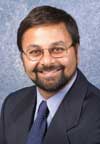 Deven R. Desai, Thomas Jefferson School of Law
Deven R. Desai, Thomas Jefferson School of Law
Deven Desai teaches trademark, intellectual property theory, and information privacy law. Professor Desai’s scholarship applies rhetorical theory to analyze the ways in which business interests (and attendant economic theories) shape intellectual property law and to reveal where those arguments explain productivity as well as where they fail to capture society’s interest in the free flow of information and development. His work aims to use intellectual property and information law as a lens to develop and offer a theory of productivity that mediates the tension between proprietary and open access understandings present in those doctrines. His recent law review articles include Privacy? Property?: Reflections on the Implications of a Post-Human World 18 Kansas J. of Law & Public Policy (2009) (forthcoming); Property, Persona, and Preservation, 81 Temple Law Review __ (2008); and Confronting the Genericism Conundrum, 28 Cardozo L. Rev. 1789 (2007) (Sandra L. Rierson, co-author).
Desai is a graduate of Yale Law School where he was co-editor-in-chief of the Yale Journal of Law & the Humanities and of the University of California, Berkeley where he studied rhetoric. Before beginning his academic career, he practiced law with Quinn Emanuel Urquhart Oliver & Hedges in Los Angeles, worked as in-house counsel with technology incubation companies and Mattel, Inc., as a policy and finance consultant for the Cory Booker for Mayor campaign. He also blogs about law, technology, and society at Concurring Opinions (www.concurringopinions.com) and Madisonian.net (www.madisonian.net).
 Laura Gasaway, University of North Carolina School of Law
Laura Gasaway, University of North Carolina School of Law
Laura N. Gasaway (Lolly) is the Associate Dean of Academic Affairs and Professor of Law at the School of Law, University of North Carolina-Chapel Hill. She was Director of the Law Library and Professor of Law at the of North Carolina from1985-2006. She teaches Copyright Law and a Cyberspace Law Seminar in the law school and Copyright Law for Librarians in the School of Information and Library Science. She is a past president of the American Association of Law Libraries. Lolly served as the first the virtual scholar in residence at the Center for Intellectual Property, University of Maryland, University College, 2001-02 and served as co-chair the Section 108 Study Group for NDIIPP and the Copyright Office, 2005-08.
 Daniel Gervais, Vanderbilt University Law School
Daniel Gervais, Vanderbilt University Law School
Daniel J. Gervais is a Professor of Law and Director of the Technology & Entertainment Law Program at Vanderbilt University Law School. Prior to joining Vanderbilt, he was Acting Dean, University Research Chair in Intellectual Property and Osler Professor of Law at the Faculty of Law of the University of Ottawa (Common Law Section). Before he joined the Academy, Prof. Gervais was successively Legal Officer at the GATT (now WTO); Head of Section at the World Intellectual Property Organization (WIPO); Deputy Secretary General of the International Confederation of Societies of Authors and Composers (CISAC); and Vice-President, International of Massachusetts-based Copyright Clearance Center, Inc. (CCC). He also served as consultant to the Organization for Economic Co-operation and Development (OECD) in Paris. He is also Editor-in-Chief of the peer-reviewed Journal of World Intellectual Property and the author of several books, book chapters and articles published in six different languages. Dr. Gervais studied computer science and law at McGill University and the University of Montreal, where he also obtained LL.B. and LL.M. degrees, together with several awards. He also received a Diploma summa cum laude from the Institute of Advanced International Studies in Geneva and a doctorate magna cum laude from the University of Nantes (France). He was Visiting Professor at several universities in Europe and North America and visiting scholar at Stanford Law School. He was also the Trilateral Distinguished Scholar in Residence at Michigan State University in 2004. He is a member of the Law Society of Upper Canada (Ontario) and of the Bar of Quebec.
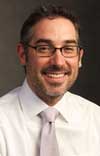 Tomas Gomez-Arostegui, Lewis & Clark Law School
Tomas Gomez-Arostegui, Lewis & Clark Law School
Tomas Gomez-Arostegui teaches torts, international intellectual property, trademarks, and copyright history. Tomas’s scholarship interests lie primarily in the history of intellectual property and in the remedies awarded in intellectual-property cases. He recently published an article on the history of copyright injunctions before the year 1800. His most recent work examines the viability of granting continuing royalties in lieu of final injunctions in patent and copyright cases. Tomas received a B.A. and his J.D. from the University of Southern California. After law school, he clerked for Judge Edward Rafeedie of the Central District of California and for Judge John C. Porfilio of the U.S. Court of Appeals for the Tenth Circuit. Tomas also practiced law with O’Melveny & Myers in Century City, CA.
 Justin Hughes, Yeshiva University Cardozo School of Law
Justin Hughes, Yeshiva University Cardozo School of Law
Professor Hughes teaches intellectual property (IP) and international trade at Cardozo School of Law in New York. Formerly a policy expert in the U.S. Department of Commerce (USPTO), his areas of expertise include domestic and international copyright, trade and IP issues at WTO, database protection, trademarks, geographical indications, and intellectual property in developing countries.
Educated at Oberlin and Harvard, Professor Hughes practiced international arbitration in Paris and, as a Henry Luce Scholar, clerked for the Lord President of the Supreme Court of Malaysia. He has been a visiting professor at UCLA and DePaul.
In his spare time, Professor Hughes has worked often in election monitoring and democracy development. He also serves at Chairman of the Thomson Foundation for Film and Television Heritage, based in Paris.
 Peter Jaszi, American University Washington College of Law
Peter Jaszi, American University Washington College of Law
Peter Jaszi teaches at the Washington College of Law, American University, where he directs the Glushko-Samuelson Intellectual Property Law Clinic, In 1995, Prof. Jaszi co-founded the Digital Future Coalition. With Prof. Patricia Aufderheide, he facilitated the 2005 “Documentary Filmmakers’ Statement of Best Practices in Fair Use” and other similar codes. Prof. Jaszi has testified before Congress on copyright topics, and writes about copyright history and theory. He is a co-author of a leading casebook and a Trustee of the Copyright Society of the U.S.A. In 2007, he received the American Library Association’s L. Ray Patterson Copyright Award for service to the public interest.
 Roberta Rosenthal Kwall, DePaul University College of Law
Roberta Rosenthal Kwall, DePaul University College of Law
Roberta Rosenthal Kwall is the Raymond P. Niro Professor of Intellectual Property Law at DePaul University College of Law in Chicago, Illinois, and the Founding Director of the DePaul Center for Intellectual Property Law and Information Technology. Professor Kwall earned her J.D. from the University of Pennsylvania Law School and her A.B. from Brown University.
Many of Professor Kwall’s writings focus on how the legal system can better incorporate the author’s perspective into the copyright regime. In this regard, her work also focuses on the intersection between human dignity and the First Amendment. One of the nation’s leading experts on moral rights, she has written numerous articles exploring both the theoretical dimensions and the practical implications of this doctrine. She has a forthcoming book with Stanford University Press entitled: The Soul of Creativity: Forging a Moral Rights Law for The United States. Professor Kwall also served in an advisory capacity to the Office of the General Counsel on the Visual Artists Rights Act. She is the co-author of leading casebooks in both Intellectual Property and Real Property. In 2006, she was designated as one of the Ten Best Law Professors in Illinois by Chicago Lawyer Magazine. She is currently working on a book for Oxford University Press exploring Jewish law as the “text” for purposes of applying a cultural analysis paradigm.
 Marshall Leaffer, Indiana University School of Law
Marshall Leaffer, Indiana University School of Law
Marshall A. Leaffer is Distinguished Scholar in Intellectual Property Law and University Fellow at Indiana University School of Law. He received his J.D at the University of Texas and his LLM in Trade Regulation at New York University Law School. In addition to his law review articles and other writings, he is the author of Copyright Law: Cases and Materials 7th ed., 2006; Understanding Copyright, 4th ed. (Lexis Nexis, 2005); and International Treaties on Intellectual Property, 2d ed. (BNA Books, 1997). Before becoming a full time teacher, Professor Leaffer practiced trademark law in New York City with American Home Products Corporation, and the firm of Haseltine, Lake and Waters. He also served in the United States government as Attorney-Advisor in the United States Patent and Trademark Office, and as Attorney-Advisor to the General Counsel of the United States Copyright Office.
 Jessica Litman, University of Michigan Law School
Jessica Litman, University of Michigan Law School
Jessica Litman is the John F. Nickoll Professor of Law and Professor of Information at the University of Michigan, where she teaches copyright law, trademark law, Internet law and intellectual property. From 1991-2006, Litman was Professor of Law at Wayne State University in Detroit. She was also a faculty member at the University of Michigan Law School from 1984-1990 and a visiting professor at NYU Law School and at American University Washington College of Law. Litman is the author of the book Digital Copyright, and the coauthor with Jane Ginsburg and Mary Lou Kevlin of a casebook on Trademarks and Unfair Competition Law. She has a B.A. from Reed College, an M.F.A. from Southern Methodist University, and a J.D. from Columbia Law School. After law school, Professor Litman clerked for 9th Circuit Court of Appeals Judge Betty Fletcher.
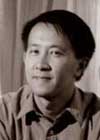 Joseph Liu, Boston College Law School
Joseph Liu, Boston College Law School
Joseph Liu is a Professor at Boston College Law School. Professor Liu writes and teaches in the areas of copyright, trademark, and internet law, with a particular focus on how digital technology is changing the way consumers interact with copyrighted works. Prior to Boston College, Professor Liu served as V.P. and General Counsel to a venture-backed internet startup. He clerked for the Honorable Levin H. Campbell of the U.S. Court of Appeals for the First Circuit. He is a graduate of Yale College and Columbia Law School, where he was Editor-in-Chief of the Columbia Law Review.
 Lydia Pallas Loren, Lewis & Clark Law School
Lydia Pallas Loren, Lewis & Clark Law School
Lydia Pallas Loren is Jeffery Bain Faculty Scholar and Professor of Law, Lewis & Clark Law School in Portland, Oregon. Professor Loren teaches and writes in the fields of copyright and cyberspace law. Her casebook, Copyright in a Global Information Economy (2d Ed. Aspen 2006) (with Julie Cohen, Ruth Okediji, and Maureen O’Rourke), has been widely adopted at law schools throughout the United States. Professor Loren’s recent law review articles include: Building a Reliable Semicommons of Creative Works: Enforcement of Creative Commons Licenses and Limited Abandonment of Copyright, 14 GEORGE MASON L. REV. 271 (2007); Slaying the Leather-Winged Demons in the Night: Copyright Misuse as a Tool for Reforming Copyright Owner Contracting Behavior, 30 OHIO N.U.L. REV. 495 (2004) and Untangling the Web of Music Copyrights, 53 CASE WESTERN RESERVE L. REV. 673 (2003). Professor Loren received her law degree from the University of Michigan School of Law, Magna Cum Laude, member Order of the Coif. During the 2006-2007 academic year Professor Loren served as Interim Dean of Lewis & Clark Law School.
 Tyler Ochoa, Santa Clara University School of Law
Tyler Ochoa, Santa Clara University School of Law
Tyler T. Ochoa is a Professor with the High Technology Law Institute at Santa Clara University School of Law in Santa Clara, California. Professor Ochoa is a co-author (with Craig Joyce, Marshall Leaffer and Peter Jaszi) of COPYRIGHT LAW (LexisNexis 7th ed. 2006), the best-selling copyright casebook in the United States. His article, Patent and Copyright Term Extension and the Constitu¬tion: A Historical Perspective, 49 J. Copyr. Soc’y U.S.A. 19 (2001), was cited by the U.S. Supreme Court in Eldred v. Ashcroft, 537 U.S. 186 (2003). He has written numerous articles on intellectual property law and two amicus briefs submitted to the U.S. Supreme Court. Prior to joining the faculty at Santa Clara, he was a Professor and Co-Director of the Center for Intellectual Property Law at Whittier Law School in Costa Mesa, California.
 Ruth Okediji, University of Minnesota Law School
Ruth Okediji, University of Minnesota Law School
Ruth L. Okediji is the William L. Prosser Professor of Law at the University of Minnesota Law School where she teaches contracts, copyright, trademarks, and global aspects of intellectual property law. She is an internationally renowned expert on international intellectual property law with a special emphasis on indigenous innovation systems, technology transfer, copyright and new technologies.
Professor Okediji has written, lectured and published extensively in the area of international copyright law and policy. She has served as a consultant to various intergovernmental organizations including the World Intellectual Property Organization (WIPO); the United Nations Development Program (UNDP); and the United Nations Conference on Trade and Development (UNCTAD). Professor Okediji is the author of the forthcoming book GLOBAL PERSPECTIVES ON INTELLECTUAL PROPERTY (Oxford, 2010) and coauthor of the leading copyright casebook, COPYRIGHT IN A GLOBAL INFORMATION ECONOMY (Aspen, 2nd Ed 2006).
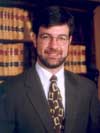 R. Anthony Reese, University of Texas School of Law
R. Anthony Reese, University of Texas School of Law
R. Anthony Reese is the Arnold, White & Durkee Centennial Professor of Law at The University of Texas at Austin. He specializes in copyright, trademark, and Internet aspects of intellectual property law. He has been a Visiting Professor at New York University School of Law in 2006-2007, Spring 2008, and Spring 2009, and was a Visiting Professor at Stanford Law School in 2004-2005. He has also taught copyright law in several international programs.
Prof. Reese has published numerous articles on copyright law and digital copyright issues in a variety of U.S. and foreign law reviews and collections. He is a co-author of the casebook INTERNET COMMERCE (Radin, Rothchild, Reese & Silverman 2d ed. 2006) and of COPYRIGHT, PATENT, TRADEMARK AND RELATED STATE DOCTRINES (Goldstein & Reese 6th ed. 2008). In 2007 he became a co-author with Robert Gorman and Jane Ginsburg of their casebook COPYRIGHT.
After receiving his B.A. degree in Russian Language and Literature from Yale University, Prof. Reese worked for several years in international educational exchange, including two years teaching in the People’s Republic of China. Prof. Reese earned his J.D. degree with distinction from Stanford University and is a member of the Order of the Coif. He served as a law clerk to the Honorable Betty B. Fletcher of the United States Court of Appeals for the Ninth Circuit. Before joining the faculty at the University of Texas at Austin, he practiced law in San Francisco for several years, and was a Research Fellow for the Program in Law, Science and Technology at Stanford Law School.
Prof. Reese is also Special Counsel to the law firm of Morrison & Foerster LLP.
 Pamela Samuelson, Univ. of California at Berkeley School of Law (Paper, Statutory Damages)
Pamela Samuelson, Univ. of California at Berkeley School of Law (Paper, Statutory Damages)
Pamela Samuelson is the Richard M. Sherman ’74 Distinguished Professor of Law and Information at the University of California at Berkeley and a Director of the Berkeley Center for Law & Technology. She teaches courses on intellectual property, cyberlaw, and information privacy. She has written and spoken extensively about the challenges that new information technologies pose for traditional legal regimes, especially for intellectual property law. She is a Fellow of the Association for Computing Machinery (ACM), a Contributing Editor of Communications of the ACM, a past Fellow of the John D. & Catherine T. MacArthur Foundation, and an Honorary Professor of the University of Amsterdam. She is a member of the Board of Directors of the Electronic Frontier Foundation, as well as a member of the Advisory Boards for the Electronic Privacy Information Center and Public Knowledge.
A 1971 graduate of the University of Hawaii and a 1976 graduate of Yale Law School, Samuelson practiced law as a litigation associate with the New York law firm Willkie Farr & Gallagher before turning to academic pursuits. From 1981 through June 1996 she was a member of the faculty at the University of Pittsburgh Law School, from which she visited at Columbia, Cornell, and Emory Law Schools. She has been a member of the Berkeley faculty since 1996 and was a Visiting Professor at Harvard Law School during the fall term 2007.
 Christopher Sprigman, University of Virginia School of Law
Christopher Sprigman, University of Virginia School of Law
Chris Sprigman teaches intellectual property law, antitrust law, competition policy, and comparative constitutional law. His scholarship focuses on how legal rules affect innovation and the deployment of new technologies.
Sprigman received his B.A. with honors from the University of Pennsylvania in 1988. He attended the University of Chicago Law School, serving as a Comment Editor of the University of Chicago Law Review and graduating with honors in 1993. Following graduation, Sprigman clerked for the Honorable Stephen Reinhardt of the U.S. Court of Appeals for the Ninth Circuit, and for Justice Lourens H. W. Ackermann of the Constitutional Court of South Africa. Sprigman also taught at the law school of the University of the Witwatersrand, in Johannesburg, South Africa.
From 1999 to 2001, Sprigman served as Appellate Counsel in the Antitrust pision of the U.S. Department of Justice, where he worked on U.S. v. Microsoft, among other matters. Sprigman then joined the Washington, D.C. office of King & Spalding LLP, where he was elected a partner. In 2003, he left law practice to become a Residential Fellow at the Center for Internet & Society at Stanford Law School. He joined the Virginia faculty in 2005.
 John Tehranian, Chapman University School of Law
John Tehranian, Chapman University School of Law
John Tehranian is Professor of Law and Director of the Entertainment Law Program at Chapman University School of Law. Before joining Chapman, he was a Professor of Law at the University of Utah, S.J. Quinney College of Law. He received his A.B. magna cum laude from Harvard University and his J.D. from Yale Law School, where he was an editor of the Yale Law Journal, Yale Journal of Law and Humanities, and Yale Law & Policy Review. Tehranian is the author of the book Whitewashed (New York University Press, 2008), and the forthcoming book Infringement Nation (Oxford University Press, 2010). His articles have appeared in such publications as the Yale Law Journal, U.C. Davis Law Review, Berkeley Technology Law Journal, Connecticut Law Review, and Indiana Law Journal. A frequent commentator on legal issues for the broadcast and print media, Tehranian has appeared on such television programs as ABC’s Nightline and has been quoted as an expert on legal issues in such publications as The New York Times, Harper’s Magazine, Financial Times, Los Angeles Times, Hollywood Reporter and Christian Science Monitor.
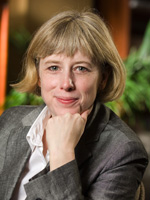 Elizabeth Townsend Gard, Tulane University School of Law
Elizabeth Townsend Gard, Tulane University School of Law
Professor Townsend-Gard, an Associate Professor at Tulane Law School, earned her Ph.D. in European History from UCLA and J.D./LL.M. from the University of Arizona. Previously, she has taught Intellectual Property at Seattle University School of Law and the London School of Economics, where she was a Leverhume Trust Postdoctoral Fellow. Since 2004, she has also been a Non-Resident Fellow of the Stanford Law School Center for Internet and Society. Her research work has included such topics as podcasting the traditional classroom, Second Life and virtual property, and copyright duration, unpublished works and the public domain. In November 2007, Professor Townsend-Gard was awarded a Research Enhancement Fund grant from Tulane University to complete her current project, The Durationator, a software tool and an accompanying study focused on the status of copyright duration in the United States and abroad. The grant is also currently funding a Speaker Series, “The Future of Copyright,” Spring 2009 with Mark Rose, Graeme Dinwoodie, Pamela Samuleson, Diane Zimmerman, James Boyle, and Peter Jaszi.
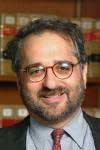 Steven Wilf, University of Connecticut School of Law
Steven Wilf, University of Connecticut School of Law
A scholar whose research focuses upon intellectual property law, historical jurisprudence, and legal history, Steven Wilf seeks to explore the fundamental ways that the origins of legal processes effect normative outcomes. Among his recent writings are a forthcoming book, Law’s Imagined Republic: Popular Politics and Criminal Justice in Revolutionary America (Cambridge UP), The Law Before the Law (Littlefield & Rowman, 2008), “The Making of the Post-War Paradigm in American Intellectual Property Law,” 31 Columbia Journal of Law & the Arts (2008), and “The Invention of Legal Primitivism,” 10 Theoretical Inquiries in the Law (2008). He has been a visiting professor at Hebrew University, Jerusalem and DAAD guest professor at the Freie Universität, Berlin. He also has held fellowships as John Carter Brown Fellow at Brown University, Fellow in Comparative Legal History at the University of Chicago, Golieb Fellow at the New York University Law School, and, most recently, at The Institute for Advanced Studies (Jerusalem). Professor Wilf’s current scholarship addresses the historical development of United States intellectual property law. He teaches Criminal Law, Development of the Regulatory State, and a variety of advanced seminars in the area of Intellectual Property, including Legal Regulation of Art and Public Culture and Intellectual Property Policy. After completing a dissertation focusing upon legal historical issues, he graduated with a Ph.D. in History from Yale University in 1995. Also in 1995, Professor Wilf received his law degree from Yale Law School. Prior to coming to Connecticut, where he was one of the founders of the Intellectual Property Program, Professor Wilf was a law clerk for the U.S. Court of Appeals for the Second Circuit and taught at Chicago-Kent College of Law.
 Alfred Yen, Boston College Law School
Alfred Yen, Boston College Law School
Alfred C. Yen is Professor of Law, Law School Summer Scholar, and Director of the Emerging Enterprises and Business Law Program at Boston College Law School. Professor Yen also served as Associate Dean for Academic Affairs at Boston College Law School from 2000-2002, and as Visiting Professor of Law at the University of Arizona during the spring of 2000. For 2007-08, he was Inaugural Distinguished Visiting Scholar of Intellectual Property at Drexel University School of Law. Professor Yen’s recent works include articles about third party copyright liability in the Georgetown, Case Western, and Minnesota law reviews, as well as the recent casebook Copyright: Essential Cases and Materials (West 2009), co-authored with Joseph Liu.
Speaker Presentations
Jon Baumgarten
Michael Carroll
Joseph Liu
Lolly Gasaway
Marshall Leafer
Tyler Ochoa
Christopher Sprigman
Conference papers
1909 Act as amended in 1977
1909 Act as enacted
Statutory Damages in Copyright Law – Pamela Samuelson and Tara Wheatland
Copyright’s Hidden Assumption – Deven Desai
Copyright and Incomplete Historiographies – Justin Hughes
Locke’s 1964 Memorandum – Justin Hughes
Authors in Disguise – Roberta Rosenthal Kwall
Copyright Protection for Works of Foreign Origin – Tyler Ochoa
Reform(aliz)ing Copyright – Christopher Sprigman
Libraries and Copyright at the Dawn of the 20th Century – Lolly Gasaway
The Evolving Role of For Profit Use in Copyright Law – Lydia Pallas Loren
Seeing But Not Hearing Music – Olufunmilayo B. Arewa
Wrestling with the 1909 Copyright Act – Elizabeth Townsend-Gard
Copyright Conference Schedule
8:30-8:45 – Welcome
8:45-9:15 – Keynote Address I: Marybeth Peters, Register of Copyrights
9:15-10:30 – Copyrightable Subject Matter, Infringement and Remedies – This panel will discuss the expansion of copyrightable subject matter to include new media such as movies and sound recordings, the standards for determing infringement under the 1909 Act, and the remedies provided for such infringement, including statutory damages and attorneys fees.
- Moderator: Tomas Gomez-Arostegui, Lewis & Clark Law School
- Howard Abrams, University of Detroit Mercy School of Law
- Michael Carroll, Villanova University School of Law
- Jessica Litman, University of Michigan Law School
- Pamela Samuelson, University of California at Berkeley School of Law
10:30-10:45 – Break
10:45-12:00 – Authorship and Ownership – This panel will discuss the conception of authorship under the Act, including joint authorship and works made for hire; the statutory provisions for inheritance of copyright ownership; and the role of moral rights.
- Moderator: Deven Desai, Thomas Jefferson School of Law
- Justin Hughes, Yeshiva University Cardozo School of Law
- Roberta Rosenthal Kwall, DePaul University College of Law
- Marshall Leaffer, Indiana University School of Law
- Tony Reese, University of Texas School of Law
12:00 – 1:15 – Lunch and Keynote Address II: William Patry, Senior Counsel, Google
1:15 – 2:45 – Formalities – This panel will discuss the important role played by formalities under the 1909 Act, including the concepts of general and limited publication, and the role of copyright notice and registration.
- Moderator: David Carson, General Counsel, U.S. Copyright Office
- Tyler Ochoa, Santa Clara University School of Law
- Christopher Sprigman, University of Virginia School of Law
- John Tehranian, Chapman University School of Law
- Elizabeth Townsend Gard, Tulane University School of Law
- Alfred Yen, Boston College Law School
2:45-3:00 – Break
3:00 – 4:30 – Exclusive Rights and Limitations, Part I – These two panels will discuss the exclusive rights that were made available to the copyright owner, including the right to make “other versions” of a work, and the limitations placed on those rights, including the development of fair use.
- Moderator: David Olson, Boston College Law School
- Jon A. Baumgarten, Proskauer Rose LLP
- Oren Bracha, University of Texas School of Law
- Julie Cohen, Georgetown University Law Center
- Daniel Gervais, Vanderbilt University Law School
- Ruth Okediji, University of Minnesota Law School
4:30-4:45 – Break
4:45 – 6:00 – Exclusive Rights and Limitations, Part II
- Moderator: Steven Wilf, University of Connecticut Law School
- Laura Gasaway, University of North Carolina School of Law
- Peter Jaszi, American University Washington College of Law
- Lydia Pallas Loren, Lewis & Clark Law School
- Joseph Liu, Boston College Law School
6:00 – 6:30 – Keynote Address III: David Nimmer, Of Counsel, Irell & Manella
6:30 – Reception
Copyright Conference Press Coverage
BNA
(BNA subscription needed to view)
“Copyright Act of 1909 Influence Continues After 100 Years, Professors Say”
Campus Technology
“High Tech Law Institute Remembers 100th Anniversary of 1909 US Copyright Act”
By Mary Grush, 5/6/09
Techdirt
“Who Knew Discussing a Long Repealed Copyright Law Could Be So Interesting…”
By Mike Masnick, 5/1/09